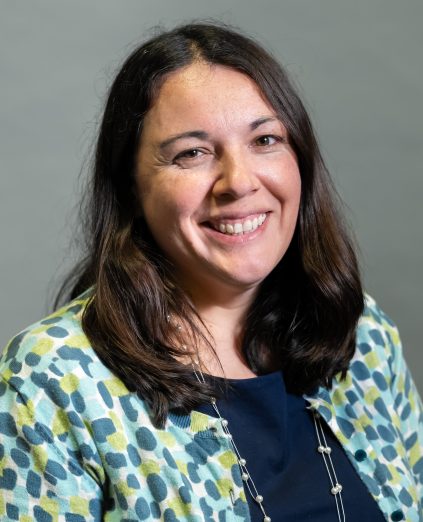Virtual Volunteering and Other Strategies that Increase Access to Volunteering Among Older Adults
Principal Investigator: Dr. Jennifer Crittenden, PhD, MSW
Our Team

Dr. Jennifer Crittenden, Ph.D., MSW
Principal Investigator
Dr. Crittenden Bio

Rachel Coleman, Ph.D.
Project Manager
Rachel’s Bio

Cynthia Cushing
Graduate Intern
Cynthia’s Bio
Project Summary
Research literature underscores the positive health and well-being outcomes experienced by older adults who engage in volunteerism. The COVID-19 pandemic has increased health and isolation risks for older adults while also threatening the connection that older adults have with traditional on-site volunteer assignments. Virtual volunteerism (VV) offers a possible solution to this for older adults in the volunteer sector and more information is needed on its current and potential use. Drawing input from three national service programs, RSVP, Senior Companion, and Foster Grandparents, this exploratory three-year study aims to describe the benefits, opportunities, and challenges of VV from both volunteer and host program/site perspectives. This will be done through:
- Semi-structured interviews with national service program directors and thought leaders in the volunteerism/civic engagement.
- Survey of RSVP program stations.
- In the subsequent years of the project interviewing and surveying older adult volunteers from across all three AmeriCorps Seniors service programs to identify benefits that are most attractive to volunteers and would result in the highest level of recruitment and retention for future volunteer cohorts.
The purpose of this research is to create recommendations that programs can put into place to increase access to virtual volunteer opportunities across digital disparities. Virtual volunteering was used as a stop-gap measure for many organizations during the Covid-19 pandemic and this research looks at how we can take the relatively newfound platform for volunteering to the next level.
Study Reports and Publications
Study Posters/Presentations
Acknowledgements
This material is based upon work funded by the Office of Research and Evaluation at AmeriCorps under Grant No. 22REAME001 through the National Service and Civic Engagement research grant competition. Opinions or points of view expressed in this document are those of the authors and do not necessarily reflect the official position of, or a position that is endorsed by, AmeriCorps.
Activities featured on this website funded under AmeriCorps grant# 22REAME001 will comply with the Executive Orders and other guidance issued in January and February 2025 and all subsequent Executive Orders by the federal executive branch. This website contains content that predates those EOs and guidance; we continue to publish that material so as to provide a full historical record of the project.
Questions?
If you have questions about the project, please contact Jennifer Crittenden at jennifer.crittenden@maine.edu
